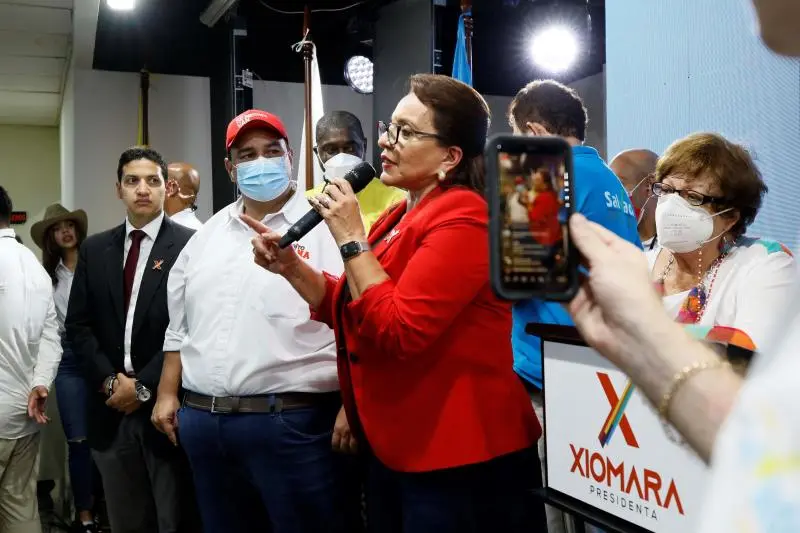Vice-president pledges to fight corruption and raise foreign investment.
Honduras has taken emergency steps to put its public finances in order, and sought investment from countries including Japan, Taiwan and the US, vice-president Salvador Nasralla said.
Last month, leftwing president Xiomara Castro took power in the Central American nation after a landslide election victory.
Her government must now tackle widespread corruption, poverty and a lack of growth and jobs that has pushed hundreds of thousands of its citizens to migrate each year.
But its finances are in dire shape. Former president Juan Orlando Hernández left short-term debts and liabilities that would have eaten up much of the central budget for this year, the government claims.
“Juan Orlando’s government took basically everything; they left nothing in the coffers,” Nasralla told the Financial Times. “Right now, we’re just looking for money to survive.”
Congress passed an emergency decree to allow the government to use IMF special drawing rights to pay debt and issue new bonds.
Nasralla said he met representatives of the governments of Japan, Taiwan and Qatar around the time of Castro’s inauguration in January, which was also attended by US vice-president Kamala Harris.
“The projects are there and there are a lot of people who want to invest,” he said. “With the help of friendly countries like the US, Taiwan, Qatar etc. [Honduras] can become, not in two, three years but maybe in ten years, at least a Central American power.”
A major barrier to Honduras attracting foreign investment has been the lack of rule of law, experts said.
In the first nine months of last year, Honduras attracted $426mn in foreign direct investment, with the top sources being Colombia, Guatemala and Panama, according to central bank data. That was higher than the previous year when it was hit by the pandemic, but well below a 2014 peak of $1.7bn for the year.
Nasralla, who helped Castro win after he backed her in coalition, said one of his priorities would be attracting and protecting investments in the agricultural sector.
“We have fertile lands, we can feed Central America, we can feed a large part of the Americas,” said Nasralla, a former sports television journalist. “Honduras is a rich country… it’s been made poor.”
Just weeks after he left office, Hernández was detained at the behest of US authorities who requested his extradition on drug and weapons charges.
To attract new investment, Castro, whose coalition does not have a majority in Congress, will need to show clear signs of fighting corruption, said Hugo Noé Pino, a former finance minister now in Congress.
The UN recently confirmed it had received a request from Honduras to set up an anti-corruption and impunity commission. Similar bodies have been set up and later dismantled by governments in the region.
“It’s a medium-term task, obviously this isn’t achieved from one day to the next,” said Pino. (https://www.ft.com/content/08e1f440-ffd0-4471-9903-aaaee6bfc781)



































